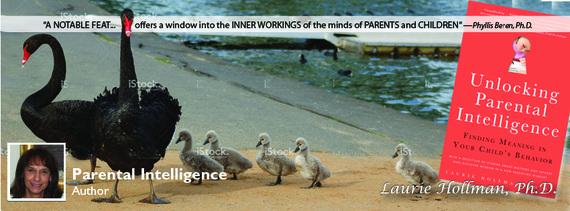During the first three months a wonderful way to stop a crying baby who isn't hungry is with a special hold described by Dr. Bob Hamilton in Santa Monica, California. His gentle manner and calm hold is helpful in calming infants. After doing this with thousands of babies, it's wonderfully relieving to learn this "hold".
Simply hold the baby's bottom with your right hand gently stirring him back and forth slowly and easily. With your other hand, take one arm of the baby across his body and put the other arm across his body as well. At a 45 degree angle comfort him shaking his booty very gently. Hold the baby with the fleshy part of your hand on his bottom. His chin is supported easily at the 45 degree angle by your hand that is holding his two arms together at his hands. This produces a content baby.
To review here are the four steps:
1.Fold the arms across the chest
2.Secure the arms
3.Gently grab the diaper area with your hand.
4.Gently rock the baby's bottom.
If this fails, maybe the baby is hungry or not feeling well. The hold is not helpful after the first 2-3 months of age, after which the baby is too heavy to carry this way well.
1.Sing to your baby while gently rocking him
2.Men's low voices often are soothing.
3.Hold the baby against your chest for skin to skin warmth.
4.Lay the baby's tummy on your lap and gently caress his back in a circular motion.
5.Lay the baby's back on your lap and gently caress his tummy in a circular motion.
6.All the while with each method use "motherese" the sing-song voice that the baby remembers from utero or in the early weeks of adoption.
If you have a colicky baby these suggestions may be particularly helpful. The colic usually lasts about three months and occurs at the latter part of each afternoon or early evening. Check with your pediatrician of course, for further advice.
 Laurie Hollman, Ph.D. is a psychoanalyst with training as an infant-parent psychotherapist. Her recent book, Unlocking Parental Intelligence: Finding Meaning in Your Child's Behavior, has a lovely chapter about parents with a fussy newborn. The book can be found on Amazon, Barnes & Noble, Familius and wherever books are found.
Laurie Hollman, Ph.D. is a psychoanalyst with training as an infant-parent psychotherapist. Her recent book, Unlocking Parental Intelligence: Finding Meaning in Your Child's Behavior, has a lovely chapter about parents with a fussy newborn. The book can be found on Amazon, Barnes & Noble, Familius and wherever books are found.
